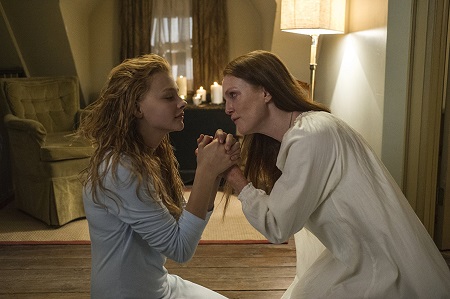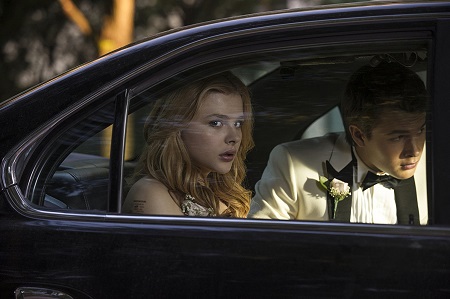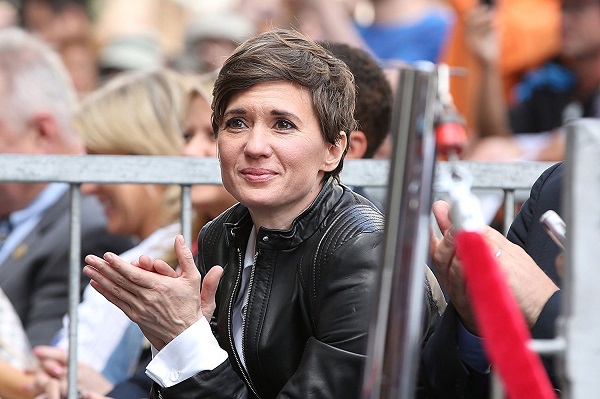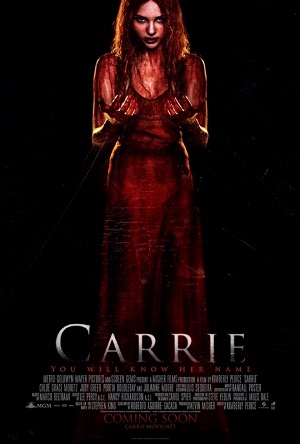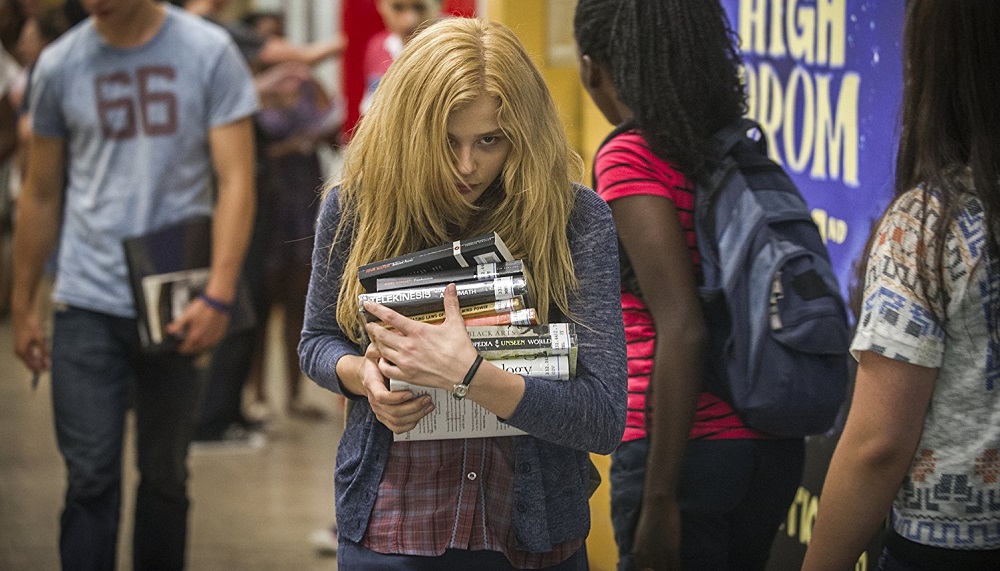
New Carrie Fails to Terrify
Carrie was author Stephen King’s first published novel, hitting store shelves in 1974 and quickly becoming an instant best-seller. Two years later, director Brian De Palma had his first bona fide smash with an adaptation, his two stars, Sissy Spacek and Piper Laurie, earning Academy Award nominations. In 1999 a rather ill-conceived sequel, The Rage: Carrie 2, was released with actress Amy Irving reprising her role as prom night survivor Sue Snell, while a 2002 television miniseries starring Angela Bettis attempted to reinvent the character for the 21st century.
For a novel almost four decades old, that’s an awful lot of fuss. King’s book, a work of fiction from the prolific writer some still consider his best (I’m personally partial to The Shining), is genius in its look at adolescence and high school, his insight into an outcast’s mind strikingly easy to relate to. He manages to understand, empathize and humanize protagonist Carrie White, getting into her mindset in a way that brings the horror home for the reader in a manner that sticks with them long after the last page has been turned.
Now comes a new, updated take on homely telekinetic firebrand Carrie White, Boys Don’t Cry and Stop-Loss director Kimberly Peirce and screenwriter Roberto Aguirre-Sacasa (“Big Love,” “Glee”) taking their shot at the character and her sordid, tragic tale. They are joined by teenage actress Chloë Grace Moretz in the title role and four-time Academy Award nominee Julianne Moore as her fundamentalist Christian mother Margaret, all of them pooling their talents to make Carrie come alive for a generation reared on Facebook, Twitter and YouTube.
On paper this sounds perfect. In practice, however, the results are a little less than stellar. While Peirce and company don’t embarrass themselves, and while certain facets of the film intimately resonate as they should, overall this new version never quite comes alive. It remains emotionally distant, never fully embracing the inherent tragedy at the heart of the story. The movie doesn’t jump off the screen or make a case to exist outside of De Palma’s classic adaptation, and while I respected much of this new Carrie I can’t say my feelings were anything other than mixed.
Carrie White is a small town High School Senior who lives with her reclusive, deeply religious mother Margaret. She is bullied at school, the local girls, most notably queen bee Chris Hargensen (Portia Doubleday), belittling her constantly, including taking a cell phone video of a particularly unfortunate moment in the gym shower.
But Carrie isn’t normal. The more emotional she gets, the more she is able to do things with her mind. It’s a power she’s only just learning how to control, and something she knows to keep secret from her mother. Yet just as she’s getting the hang of these abilities Tommy Ross (Ansel Elgort), the sexiest boy in school, asks her to Prom, his cheerleader girlfriend Sue Snell (Gabriella Wilde) wanting to do something she thinks would be nice for Carrie after the way Chris, herself and the rest of the popular girls treated her in the shower.
I’m not going to spoil what happens next. Even if you’ve never read King’s book or seen the 1976 version chances are you still know what will transpire at Prom, much of what eventually takes place having entered the cultural lexicon. Rest assured, much like Margaret predicts the night does not go well for Carrie White, the kids at school going to rue the day they decided to pick on someone they wrongly perceived as being harmless. In the process, Peirce and Aguirre-Sacasa, staying relatively close to King’s prose, attempt to analyze teenage life, high school hierarchies and religious-fueled paranoia, all of it packaged in an emotionally-charged firestorm of revenge and retribution where simple kindness can be transformed into unthinkable tragedy in the blink of an eye.
Problem is, as handsome as the production is, as good as many individual scenes might be, on the whole I never felt like Peirce or Aguiree-Sacasa were bringing anything new to the conversation. The themes they are dissecting have been analyzed before with more depth and greater nuance, and as far as shock and awe are concerned they don’t come close to achieving anything near what De Palma did 27 years ago. So much of the film is rudimentary to the point it’s almost tedious, all of which makes caring about much of what transpires exceedingly difficult.
At the same time, I admire Pierce’s restraint, her attempts to put character development first and terror-filled imagery a decided second worth applauding. When the Prom erupts into violence she keeps the focus on Carrie, allowing her monstrous devolution to hit home in ways it never would have otherwise. Equally good are early scenes between Moretz and Moore, especially right after the girl’s shower room bullying, their interactions hinting at future complexities that are frustratingly never as fully explored as I initially hoped they would be.
Would I feel different about this Carrie had I not read King’s book and if I wasn’t familiar with De Palma’s classic version? I don’t think so. Sue’s character remains annoyingly one-dimensional, while Chris’ evil intentions are more nondescript and vague than they are repugnant and deplorable. Even worse, the climactic showdown between Carrie and Margaret falls disappointingly flat, the emotional catastrophe born out of the Prom’s chaos never explored or delivered in a manner that feels anything other than facile and forgettable. The climactic scares never materialize, making the title character’s journey nowhere near as powerful, profound or as impactful as by all accounts they should have been.
– Review reprinted courtesy of the SGN in Seattle
Film Rating: 2 (out of 4)
Additional Link:
Interview with Kimberly Peirce


